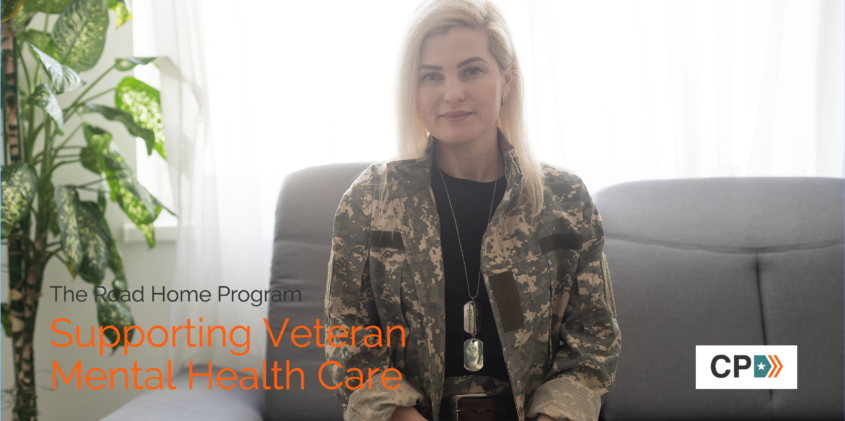Supporting Veteran Mental Health Care
According to the Department of Veteran Affairs, between 11% and 20% of Veterans who served in Iraq and Afghanistan have post traumatic stress disorder, including combat PTSD and military sexual trauma. When Veterans have a traumatic experience, like combat or sexual assault, they can be left feeling powerless. That’s when PTSD can take hold.
“When I was in the Marine Corps, there was nothing I wouldn’t do for my squad,” Chris Miller, a combat Veteran and Community Outreach Coordinator at The Road Home Program, said. “But you don’t leave the military with your team, so others have to pick up the slack. It’s important as a military community to come together and help each other.”
Chris has worked at The Road Home Program since 2013. In his current role, he connects Veterans suffering from PTSD with the program’s free, evidence-based outpatient mental health services.
Chris can personally attest that recognizing Veteran PTSD can be complex.
“When I left the military in 2003, I didn’t have flashbacks, so the VA practitioners didn’t recognize my PTSD symptoms. When I moved back to my hometown, my family saw something was wrong and helped me get help.”
The Road Home Program has a list of military trauma response symptoms, including isolation, anxiety, substance abuse, disturbed sleep, and more that can indicate undiagnosed PTSD in Veterans. But these symptoms can be hard to spot, especially during the Covid-19 pandemic.
“When dealing with PTSD, two of the more identifiable symptoms are isolation and avoidance,” Chris said. “So when everyone’s quarantining, it’s harder for me to find those who need help.”
“As such, one of the most important things to do if you think a Veteran is struggling is to connect with the family members. They’ve known the Veteran for a long time and know their baseline behavior. They notice something is off first.”
If you know a Veteran experiencing PTSD symptoms, what can you do to help? According to Chris, you have to ask a bit more than “Are you doing alright?”
“You have to have tough conversations and probe deeper,” Chris said. “If someone you know has symptoms that impede their daily functioning, you should encourage them to seek professional help. No matter how hopeless it can seem, PTSD is treatable.”
“Physical healthcare is normalized, and it should be the same for mental healthcare. Some parts of the military still have a stigma around Veteran mental health, but the situation is improving. The VA now collaborates with private sector groups, like The Road Home Project, to provide more Veterans with mental health services.”
The Road Home Program emphasizes military culture in their three programs: weekly outpatient care, weekly virtual outpatient care, and an intensive 3-week outpatient program in Chicago called “PTSD bootcamp.” Their programs are free for all Veterans, regardless of discharge status.
To learn more about the services available, visit The Road Home Program website.
If you or a Veteran you know is in crisis, contact the Veterans Crisis Line for 24/7 confidential crisis intervention and support. Call 1-800-273-8255, text 838255 or chat online at VeteransCrisisLine.net/Chat.
Kayla Elkin is the Marketing Content Specialist at Code Platoon. In this role, she uses her marketing, writing, and editing skills developed from previous positions in higher education and educational technology. Kayla has degrees in English and Sociology from Clemson University and completed the Study in India Program (SIP) at the University of Hyderabad. She lives with her partner in northern Chicago.
Subscribe To Our Newsletter
Join our mailing list to receive the latest news and updates from our team.
Thank you for subscribing to our email list!

